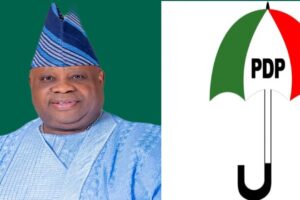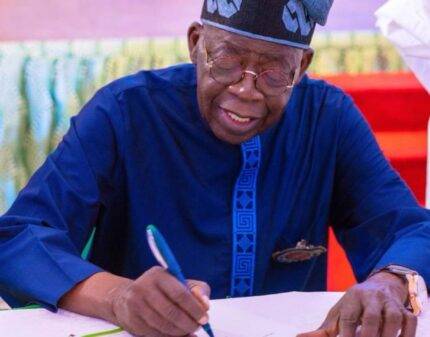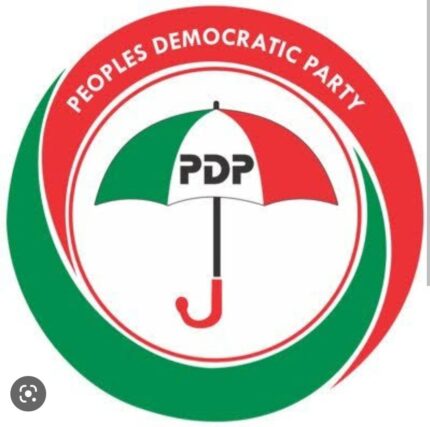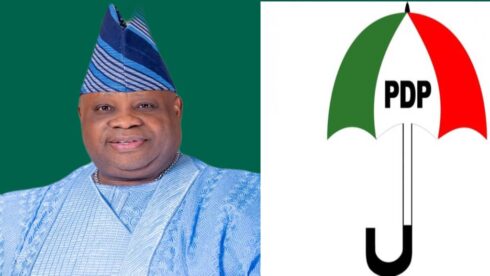Nigeria’s total public debt has surged to N142.3 trillion as of September 30, 2024, reflecting a 5.97% increase from N134.3 trillion recorded in June 2024. This rise, largely driven by exchange rate depreciation and increased borrowing, underscores concerns about the country’s growing debt burden.
Data from the Debt Management Office (DMO) reveals a complex debt structure with both external and domestic components witnessing significant shifts. As Nigeria grapples with mounting financial obligations, policymakers and analysts continue to assess the sustainability of this debt trajectory.
Sharp Increase in External Debt Amid Naira Depreciation
Nigeria’s external debt rose marginally in dollar terms, increasing by 0.29% from $42.90 billion in June to $43.03 billion in September. However, in naira terms, the story is different—external debt surged by 9.22%, jumping from N63.07 trillion to N68.89 trillion within three months.
This sharp rise is attributed to the naira’s depreciation, as the exchange rate weakened from N1,470.19/$ in June to N1,601.03/$ by the end of September. The Federal Government’s external debt alone accounted for $38.12 billion, while states and the Federal Capital Territory (FCT) held $4.91 billion in external obligations. These figures highlight the growing financial strain as Nigeria’s currency continues to lose value.
Domestic Debt Rises Despite Reduction in Dollar Terms
While external debt showed a marginal increase, Nigeria’s domestic debt experienced mixed movements. In dollar terms, domestic debt declined by 5.34%, falling from $48.45 billion in June to $45.87 billion in September. However, when converted to naira, domestic debt actually increased by 3.10%, rising from N71.22 trillion to N73.43 trillion.
The Federal Government remains the biggest domestic borrower, with its obligations growing from N66.96 trillion to N69.22 trillion within the quarter. Meanwhile, the total domestic debt for states and the FCT saw a slight decline from N4.27 trillion to N4.21 trillion. Analysts warn that Nigeria’s rising debt service obligations could place additional strain on government revenues.
Nigerian Federal Government’s Bond Issuance Drives Debt Growth
The surge in Nigeria’s domestic debt is largely attributed to increased issuance of Federal Government bonds, which rose by 4.47%, reaching N54.65 trillion in September, up from N52.32 trillion in June. These bonds now constitute 78.95% of the total domestic debt stock.
A major highlight of the quarter was the launch of Nigeria’s first-ever domestic dollar-denominated bond, which saw over $900 million in subscriptions. The $500 million bond, coordinated by the Africa Finance Corporation, marked a milestone in Nigeria’s financial market, adding N1.47 trillion to domestic debt. This move reflects the government’s growing reliance on domestic financing amid dwindling foreign exchange reserves.
Other debt instruments also recorded notable shifts. Nigerian Treasury Bills (NTBs) declined slightly by 0.66%, falling from N11.81 trillion to N11.73 trillion, reflecting efforts to moderate short-term borrowing. In contrast, promissory notes, used for government obligations like contractor payments, grew by 5.80%, reaching N1.77 trillion.
Debt Sustainability Concerns Mount as Interest Payments Soar
Economic experts have expressed concern over Nigeria’s rising debt levels, particularly as interest payments consume a significant portion of government revenue. Dr. Muda Yusuf, CEO of the Centre for the Promotion of Public Enterprises (CPPE), warned that Nigeria risks falling into a debt trap if borrowing continues at the current rate.
Yusuf emphasized the need to reduce foreign debt exposure, as exchange rate fluctuations significantly inflate Nigeria’s debt burden in naira terms. He noted that high debt service costs could crowd out funding for critical sectors like healthcare, education, and infrastructure. While the government’s reliance on domestic bonds provides some relief, the long-term cost of debt servicing remains a growing concern.
Nigerian Government’s Response and Revenue Mobilization Plans
In response to the rising debt levels, the Federal Government has reiterated its commitment to aggressive revenue generation. Minister of Budget and Economic Planning, Abubakar Bagudu, highlighted efforts to boost non-oil revenue and fund infrastructure projects through the Renewed Hope Infrastructure Fund.
Bagudu praised President Bola Tinubu’s economic reforms, stating that Nigeria’s GDP growth has remained above 3% for three consecutive quarters. He further noted that key reforms—such as fuel subsidy removal and foreign exchange policy adjustments—have boosted liquidity and increased allocations to states and local governments.
To sustain economic growth, the government is focusing on key sectors like petroleum, solid minerals, and creative industries to unlock new revenue streams. Additionally, tax reforms are being prioritized, with lawmakers urged to pass key tax bills aimed at raising Nigeria’s revenue-to-GDP ratio to 18%.
As Nigeria continues to grapple with rising debt and exchange rate volatility, effective fiscal management and sustainable borrowing strategies will be critical in maintaining economic stability
Table of Contents
Discover more from OGM News NG
Subscribe to get the latest posts sent to your email.














